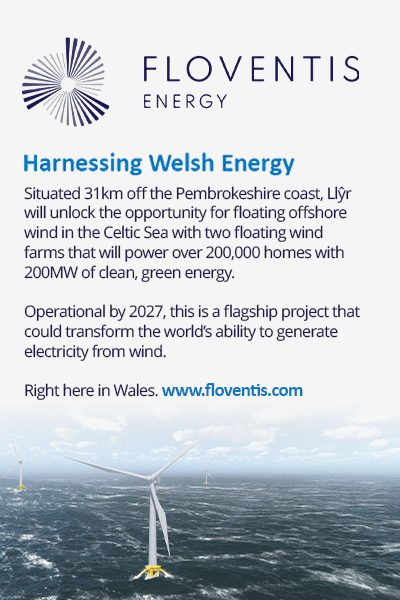
Next month’s UK General Election hinges on two slogans the political parties want voters to hear. On the one hand the Conservative’s “stick to the plan”, and on the other, Labour’s “time for change” message.
Age old questions about funding public services, addressing the cost of living crisis and incentivising economic growth continue to swirl, but how do these two different slogans translate when viewed through the lens of energy policy?
The Conservatives have said they aim to reach a net zero power system – where almost all fossils are removed from UK electricity production – by 2035, whereas Labour has pledged to do it by 2030, alongside a proposal for a publicly-owned company called Great British Energy to invest in renewables. A clean energy future is the prize for all modern economies, safeguarding energy security, providing lower-cost electricity for billpayers, boosting the competitiveness of businesses and supply chains, and supporting thousands of jobs nationwide. Replacing the electricity currently provided by gas-fired power stations with a system geared around wind and solar is a Herculean task, whichever date you pick, and we will need to see bold action to deliver this in Wales.
So, let’s boil it down a little and stick with that 2035 figure for now – which matches the Welsh Government’s ambition to meet 100% of electricity demand from renewable sources by 2035. Only a quarter of all energy generated in Wales today comes from renewables. There are three strategic barriers to rapid progress: a poor grid network, a painfully slow and under-resourced planning and consenting system, and a lack of investment in our ports and supply chain which prevents them from scaling-up to meet demand. From wind, our data reveals there is just under 2GW of capacity currently installed. The good news is, another 8GW of onshore and offshore projects are waiting in the pipeline. This addition should be enough to meet that 2035 target, but how achievable is it to more than quadruple capacity, fast-track it through the planning system, connect it to the grid and then get it all built in the next ten years?
Let’s look at the evidence to date. Any renewable energy developer will tell you Wales’ grid network is the single biggest hurdle we face. Each renewable energy project requires a new grid connection point, and the amount of wind power that will need to connect to our grid by 2035 is projected to increase by up to seven times. The North and South of the country have grid transmission networks, but they are ‘grid-locked’ so to speak, with energy projects facing long wait times out to the 2030s for a connection date. Mid Wales on the other hand lacks any grid infrastructure at all. This is not only a severe limitation for the realisation of that 2035 target, but it also dampens the investment appetite in Welsh renewables, and means we risk losing out on the benefits of projects that will simply go elsewhere in the UK where the conditions are more favourable.
Every year the Welsh Government publishes its ‘Energy Generation in Wales’ report. The latest version covering 2022 revealed no projects were connected to the grid and only 6kW of wind power got up and running. To put this into scale, 6kW is micro, barely enough to power a single household!
In short, we need to narrow the gap between ambition and delivery on the ground, with extensive policy intervention and market support to tackle this and achieve the ambitions set out by the various parties.
Between them, the UK and Welsh Governments have the toolkit to fix this problem. The issue is making each aware of the right tool to use and how best to synchronise their efforts. For example, certain powers, like market reform, major grid upgrades and economic investment for our ports and supply chain sit with the UK Government. While others, such as planning and consenting and skills development, rest with the Welsh Government.
That is why we want to highlight two key asks of the next UK Government coming into office.
1. Create a collaborative four-nations taskforce to address the strategic barriers of grid connectivity and economic under investment in Wales.
2. Support our ask for the Welsh Government to set technology specific deployment targets which they stand behind. Without this commitment, we will not see a clear delivery route to transform that pipeline of opportunity into reality.
Voters want governments to invest in renewables. Polling conducted by Opinium for RenewableUK showed nine out of ten people in Wales believe renewable energy should be a key focus for the next UK Government, and 63% would like their local MP to advocate for more renewable energy investment. The latest analysis by Aurora Energy Research shows that increased investment in renewables is good for bill payers. It found that consumers would be around £68 a year better off by 2035 with an electricity system dominated by offshore wind, compared to a scenario in which the Government did not proactively encourage investment in clean power.
We need a UK Government ready to stand up and seize this opportunity alongside Wales. The choice between ‘stick to the plan’ and ‘time for change’ boils down to a looming crunch-time decision on how we achieve these ambitious renewable energy goals. The electorate must decide which party's slogan best aligns with a future where energy policy not only meets targets but delivers tangible benefits to households and businesses across the UK.
You can read RenewableUK Cymru's Manifesto here: RUK-Cymru-Manifesto-2024.pdf (renewableuk-cymru.com)






